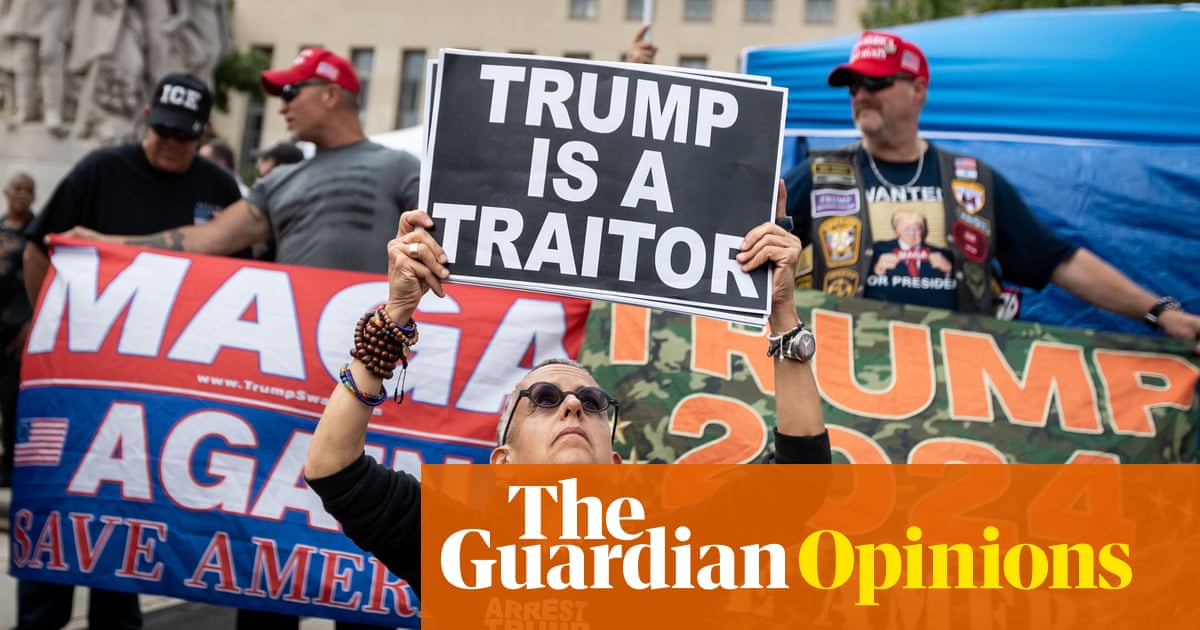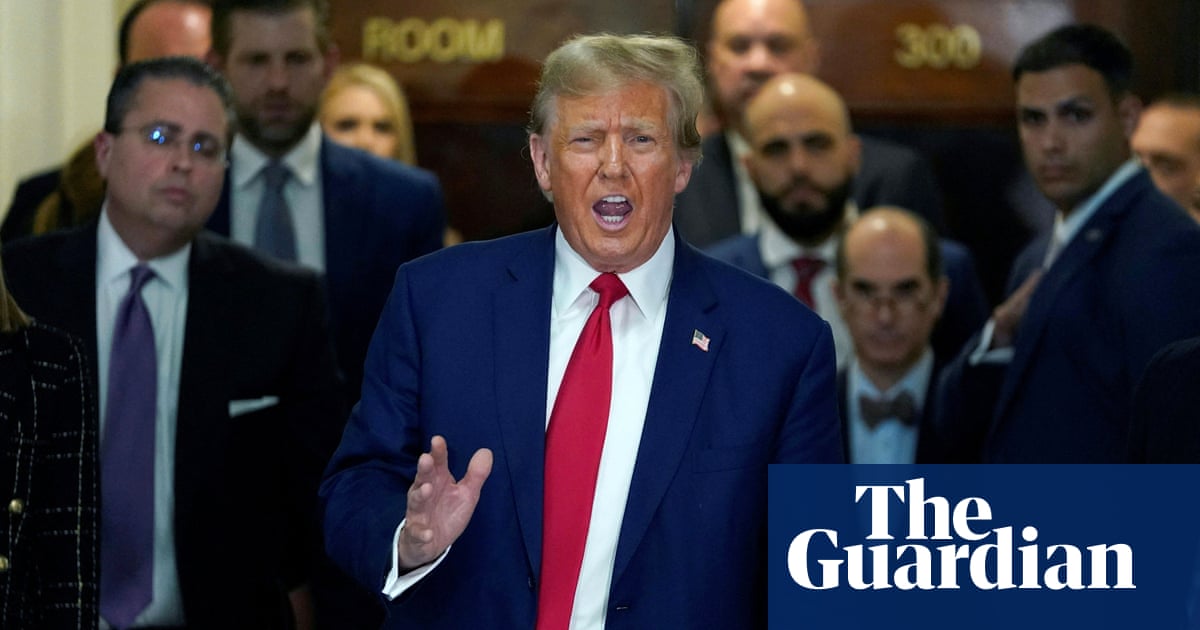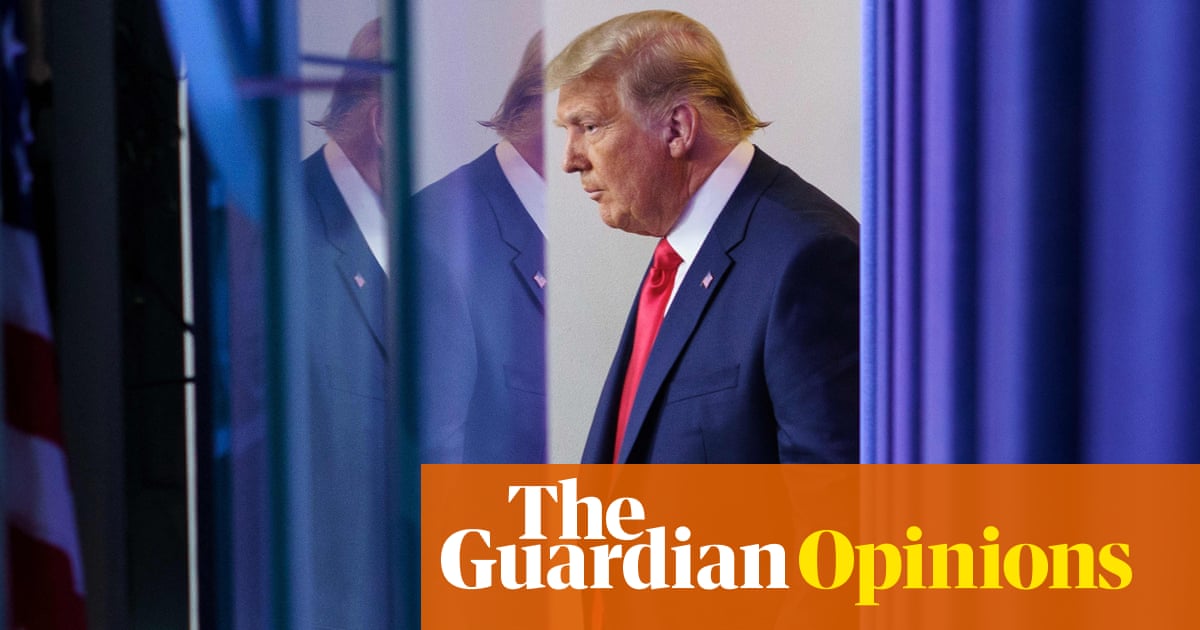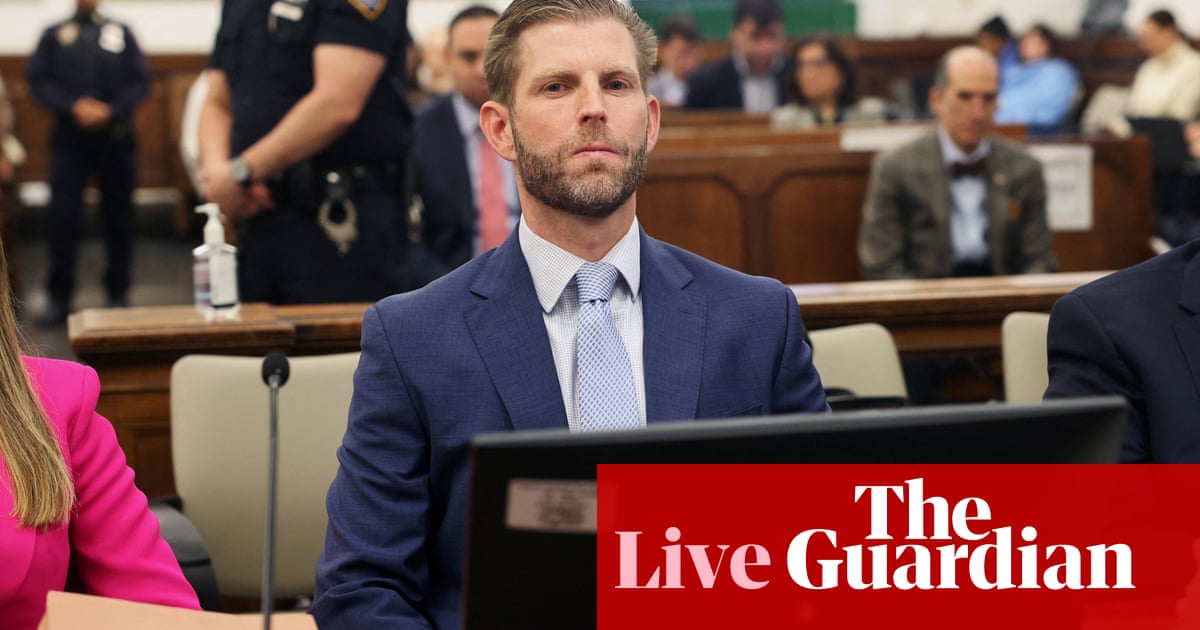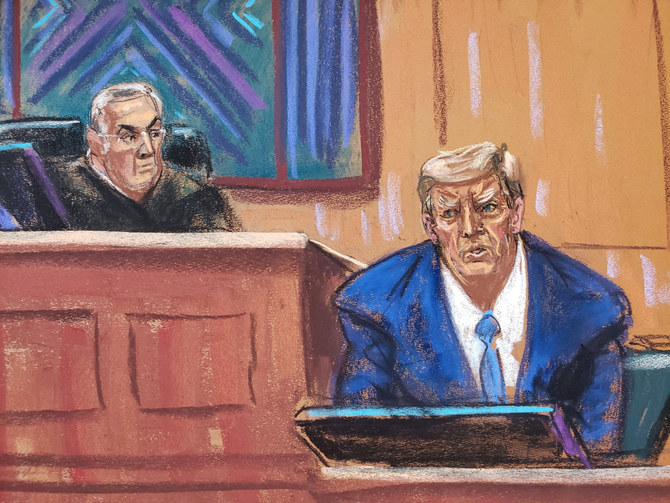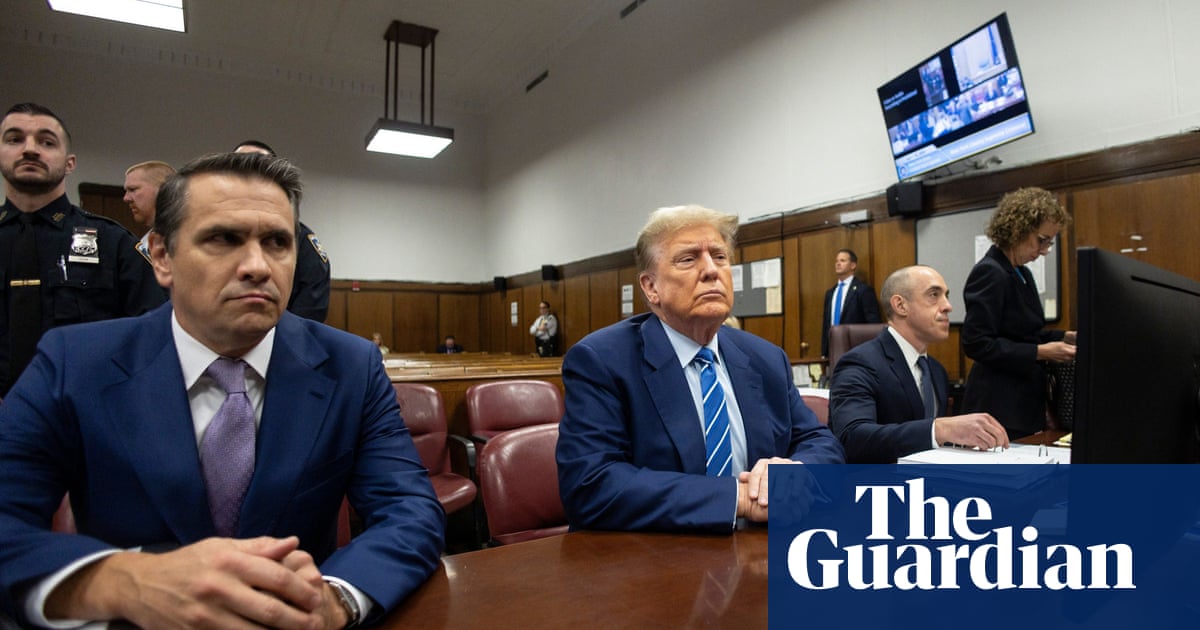
On the docket: Trump in trouble (and seven jurors)
It only took one day for Donald Trump to land in hot water with judge Juan Merchan.
Immediately after a potential juror exited the courtroom after being questioned by Trump’s attorney about her social media posts, Merchan said that he could hear Trump “muttering” while she had been standing less than 12ft away from him – and issued a stern warning to the former president.
“It was audible. He was gesturing and he was speaking in the direction of the juror,” a visibly irritated Merchan told Trump’s attorney, raising his voice. “I will not have any jurors intimidated in this courtroom.”
He then directed Trump’s attorney, Todd Blanche, to speak to Trump about his behavior.
The exchange was one of the testier moments in the first full day of jury selection for Trump’s first criminal trial, as Trump’s attorney tried to remove any potential jurors who had displayed negative views of the former president. Merchan rejected many of those efforts – “The question is not whether someone agrees with your client politically or not. The question is whether or not they can be fair and impartial,” Merchan told Blanche at one point – but he did agree to dismiss a few, including a prospective juror who had previously called for Trump to be jailed.
By the end of the day, the original pool of 96 potential jurors had been whittled down dramatically. More than half had been excused on Monday. The prosecution and defense each used a few of their own “peremptory challenges” (each side gets ten challenges to remove a potential juror without giving a reason) to remove a dozen more.
Out of that pool, six jurors were chosen. Merchan swore them in this afternoon, and told them to expect to return for the trial’s opening statements as soon as Monday morning. After a few more hours of questioning, and right before adjourning for the day, he swore in a seventh.
Sidebar: contempt papers in
In a motion filed on Tuesday, prosecutors argue that Trump should be held in contempt because he “wilfully violated” Merchan’s gag order which bars Trump from making public statements about potential witnesses by publishing several social media posts attacking his former attorney Michael Cohen and Stormy Daniels, the porn star with whom he allegedly had an affair.
The prosecutors write that it’s “absolutely critical” to stop Trump from violating the gag order in order to “protect the integrity of the ongoing trial.”
“A finding of criminal contempt, imposition of sanctions, and stark warnings from this court are the minimum remedies necessary to achieve this indispensable objective,” they continue.
Trump called Cohen and Daniels “sleazebags” in a social media post on 10 April, after Merchan issued his gag order, and then on 13 April referred to Cohen as a “disgraced attorney and felon”.
The filing came after prosecutors requested during Monday’s pretrial proceedings that Merchan hold Trump in contempt and fine him $1,000 for each social media post. The judge gave Trump’s attorneys until Friday to respond, and has scheduled a hearing for next Tuesday morning to determine whether he’ll issue sanctions.
In other news: supreme court skepticism
Down in DC, the US supreme court heard oral arguments on a case that could have huge ramifications for Trump’s own federal election interference criminal trial – and justices expressed skepticism that some of the charges that have been leveled against Trump in that case should be allowed.
Here’s Guardian US reporter Hugo Lowell with more:
The US supreme court expressed concern on Tuesday with prosecutors using an obstruction statute to charge hundreds of January 6 Capitol riot defendants, with the justices leaning towards a position that could jeopardize those prosecutions and the criminal case against Donald Trump.
The Trump case was not mentioned at the argument. But a decision curtailing the use of the obstruction statute in connection with the Capitol attack could eliminate two of the four charges against the former president.
The case, which on its face involves a January 6 riot defendant named Joseph Fischer, became of sudden importance last year after Trump was also charged with obstruction of an official proceeding over his efforts to stop Congress from certifying the results of the 2020 presidential election.
At issue is whether the obstruction statute passed under the Sarbanes-Oxley Act in 2002 in the wake of the Enron scandal could be used to prosecute general instances of obstruction, or whether it was intended to be used more narrowly for evidence tampering or document destruction.
If the supreme court decides that section 1512(c) of title 18 of the US criminal code was being used too broadly, it could cripple part of the case against Trump as the special counsel Jack Smith looks to draw a line at trial from the former president’s January 6 speech to the violence.
And if the court moved to strike down the use of the obstruction statute, it could undercut the remaining conspiracy statutes used in the indictment against Trump.







